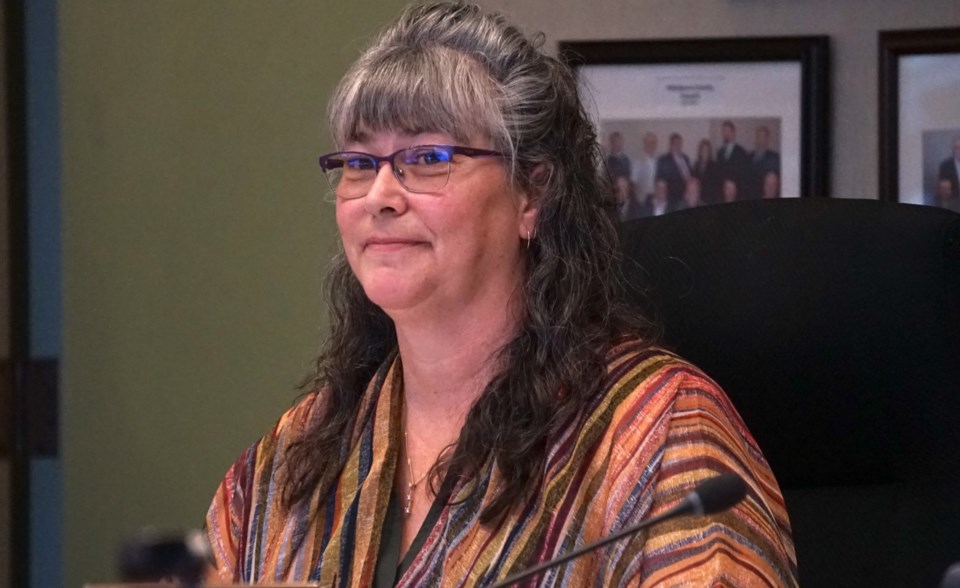ATHABASCA — Athabasca County councillors are one step closer to signing a Memorandum of Understanding (MoU) with five other municipalities along the historic Athabasca Landing Trail after debate and disagreement ended with official approval of the document.
The agreement, which is still in need of final approval by the Athabasca Landing Trail Steering Committee (ALTSC) before official signing, is intended to recognize the value of the trail and commit to continued collaboration in management and development of the path from Fort Saskatchewan to the Athabasca River.
“The rest of the communities that actually have this trail in their jurisdiction want to know that everybody is on the same page, to do what they can, when they can, with their budget,” said Coun. Tracy Holland. “I think it’s an excellent start in making sure we have everything on paper.”
During their June 11 regular meeting, county councillors voted to approve the agreement, but not without debate around the table first.
An initial motion to refer the MoU to administration for their recommendation was defeated with a vote of 6-3, which saw Councillors Ashtin Anderson, Camille Wallach, and Reeve Brian Hall in favour. The second motion to approve the agreement passed with a count of 7-2, with Anderson and Wallach in opposition.
The three-page agreement notes collaboration between all parties involved in the trails management and oversight is crucial to the success of the 150-kilometre trail system. Other municipalities participating in the MoU process are the Towns of Athabasca and Gibbons, and Westlock and Sturgeon Counties.
Responsibilities for the municipalities involved include participating in general planning through the ALTSC, review items like permits, easements, and approvals for trail development projects within their boundaries, and explore a range of funding opportunities for projects.
Councillor concerns
The first motion to hit the floor was one to refer the MoU back to administration for their input on the document. Anderson noted in her final statement on the motion that although council had previously expressed interest in having a larger conversation around trail strategy, approving the agreement seemed pre-emptive.
“I really feel that this RFD and the recommendation is an individual councillor trying to push this item along prior to us having that discussion,” she said. “I just think that we need to have a little bit more information from administration prior to pushing things along in this manner.”
Holland issued a point of order during Anderson’s statement, a point which Hall replied was not well-taken.
“One councillor is not trying to push the item when we had five municipalities that actually worked together on this, so I take offence to that; it’s uncalled for,” said Holland.
Hall also expressed support for the item to be returned to administration for further feedback, citing clarity issues within the request for decision around ownership of the land within county borders.
CAO Bob Beck was able to give his input immediately: “If you refer the MoU to us for more analysis, we’re going to recommend you just adopt it because all the other ones have adopted it,” said Beck.
The Town of Athabasca approved the final version of the MoU on May 21, and while other municipal councillors have yet to officially give their ultimate thumbs up, Beck noted each region’s ALTSC representatives have expressed support of the document.
He said Athabasca County administration did suggest changes to language in a previous draft of the MoU. Several changes to wording were made by the CAO of Sturgeon County, amendments Beck supported.
Wallach voiced concerns over how much administration time would be eaten up by the demand-like clauses in the agreement that call for annual review of funding commitments, pursuit of grants and other fiscal opportunities, and legal requirements for further trail development.
Beck stressed the notion that the MoU is non-binding, and any requirements for maintenance, development, funding and administration time going forward would need to be determined by councillors.
“Council needs to have a robust discussion about the level of service this council is committed to the trail endeavour,” said Bob. “Council gets to set the level of how far it wants to support the trail endeavour within its boundaries.”
After the motion to refer the item back to administration was defeated and before the vote on approval of the MoU, Coun. Rob Minns voiced his take on the issue.
“We got a response from administration that said they were just going to take the MoU and bring it right back at the next meeting, so that’s why we should just approve it.”



